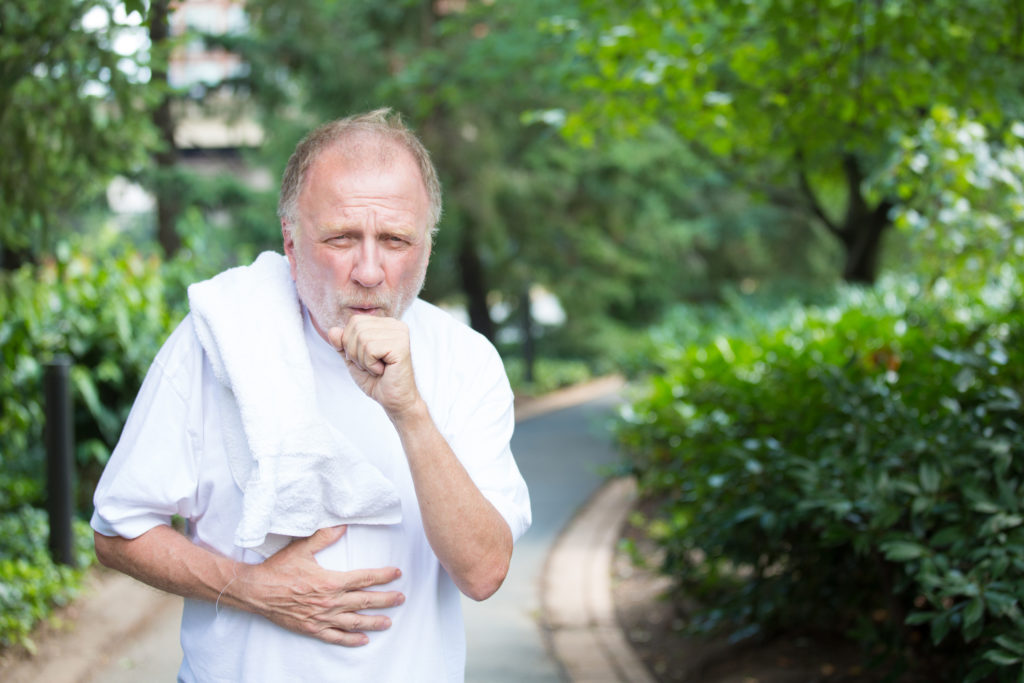How to Breathe Easier with COPD

Chronic Obstructive Pulmonary Disease (COPD) is an umbrella term for a variety of progressive lung diseases including emphysema and chronic bronchitis. According to the National Institutes for Health, approximately 12 million Americans are diagnosed with the disease and another 12 million are thought to be undiagnosed. Death rates from the disease are rising; currently about 120,000 people die from COPD each year.
For those living with COPD, there are several things they can do to help mitigate the effects of the disease. Here are a few tips that may help:
Stop smoking
If you smoke, the single most effective thing you can do to help your COPD is to stop. Most people who stop smoking feel better almost immediately. In the long term, the rate of decline in lung function slows dramatically, often adding years to people’s lives.
Exercise
Although it may seem counterintuitive for someone who suffers from shortness of breath to exert themselves physically, exercise has the following benefits:
- Helps your body use oxygen more efficiently
- Strengthens your heart and cardiovascular system
- Improves your circulation and lower blood pressure
- Helps maintain a healthy weight
- Gives you more energy to stay more active
Always talk to your healthcare provider before starting any exercise regimen.
Eat well
In addition to eating nutritiously – which includes eating a balanced diet of fruits and vegetables, lean proteins, healthy fats, and whole grains with lots of fiber – how you eat can also affect COPD. For instance, many people with COPD feel breathless after eating a large meal. So try eating smaller meals throughout the day. Also maintaining a healthy weight goes a long way in helping people live well with COPD. Being too heavy means you’re carrying around extra weight, which can make your heart and lungs work harder, creating a shortness of breath. Being underweight might make you feel weak and tired, potentially increasing your risk of getting an infection. Finally, eating nutritiously boosts your overall wellness, making you less prone to getting sick.
Practice prevention
Steer clear of people who are sick and get vaccinated for the flu, pneumonia and whooping cough, all of which can complicate COPD symptoms. Follow standard protocols for minimizing your exposure to germs, including washing hands regularly.
Reduce your stress level
Stress can exacerbate any condition or illness, making symptoms worse. Getting enough exercise and plenty of sleep can go a long way is reducing stress. Additionally, meditation has shown to increase overall well-being for people living with COPD. It can help promote deeper breathing, improve the quality of sleep and increase your energy level.
Start a pulmonary rehabilitation program
For those with more serious symptoms or who want a little assistance in achieving wellness, pulmonary rehabilitation may be the answer. Pulmonary rehabilitation includes breathing retraining, exercise training, nutrition counseling, medical management as well as emotional support.
![CPT Rehab [logo]](https://www.cptrehab.com/wp-content/themes/cpt-rehab/images/logo.png)